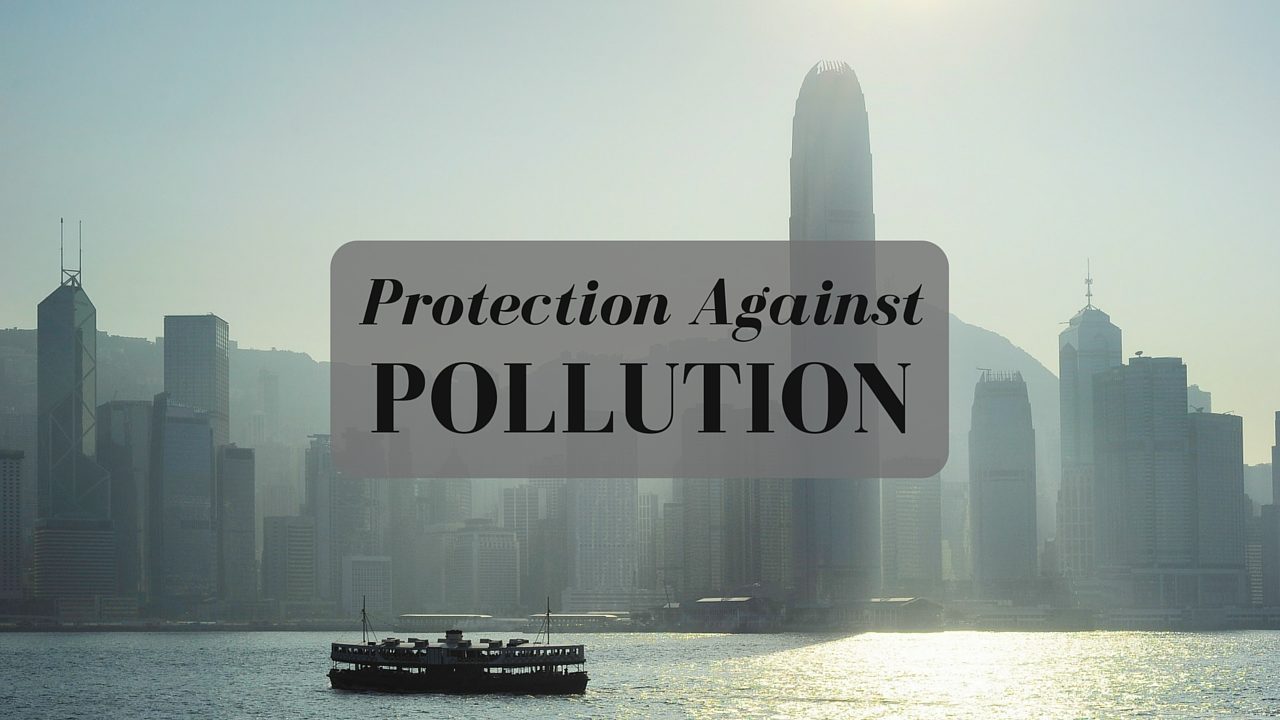Hong Kong’s air pollution woes can be downright depressing. Dirty air has been linked to lung cancer and heart disease, and can cause havoc for asthmatics. So what can be done? While air purifiers are a great start, there are actually many things Hongkongers can do to breathe a little easier, and most are simple and free. Start doing these today:
Get Informed
As the old adage goes—know thy enemy. Make a daily habit of checking your area’s pollution levels using the government’s Air Quality Health Index. This site displays the short-term health risk based on the levels of four main pollutants, as well as PM2.5 and PM10. The Hong Kong Real Time Air Quality Index is another great tool and is updated every hour. Or try downloading the Hong Kong Air app (although you may be dismayed to see that what the HK government considers low health risk, is typically deemed higher risk by other countries and the World Health Organisation.)
Purchase Air Purifiers
One thing you can control is the air quality in your own home. Say goodbye to itchy eyes, sore throats, coughs and headaches, and hello to more restful sleep and better overall health. Air purifiers work like air conditioners, so you really need one for every room, or at least the rooms you spend the most time in, like your bedroom. Ensure the model you purchase can eliminate even the tiniest, most dangerous particles, and if choosing a conventional filter and fan-based air purifier, make sure it’s HEPA certified and has an independent performance report. Check out the filter-free technologies that are now on the market too, which blitz even the finest particles, while saving your wallet, as there are no replacement filters.
Develop Good Habits
Becoming pollution savvy can make a huge difference to your health. On days when the air pollution index is high, swap that run in the park for a workout in the gym. Children are more smog sensitive, so if the index goes beyond 8, consider keeping them indoors. Definitely no outdoor exercise – not for your children, not for you – when the index reaches 9 or 10.
Open your windows in the morning and close them before lunch, when pollution starts to build. Closing your bedroom door an hour before bedtime will ensure your purifier has created optimal air quality for a good night’s sleep.
Maximise your Body’s Natural Defence
Healthy, antioxidant-rich foods (think berries and greens) offer a great natural defence, while upping your daily water intake will flush out the nasties. Load up on vitamins A, C and E, as well as selenium, to protect your lungs and body. Even something as simple as breathing through your nose will help, as it maximises the body’s natural filter mechanisms.
Pick your Place
It’s not an easy option, but if you are really suffering from pollution exposure then you could research local air quality and consider changing your address. Tuen Mun, Yuen Long, Kwun Tong and Tung Chung are among the worst affected when it comes to toxic air. The government air quality health index website is a good starting point for your research, and this article from the South China Morning Post gives a useful summary.
Take a Leaf out of Nature’s Book
Indoor plants not only look fabulous, they’re mother nature’s original air purifier. An old NASA study lists a number of hard-working plants that absorb carbon dioxide and release oxygen, including the Areca Palm, Money Plant and Mother-In-Law’s Tongue. Some even eliminate volatile organic compounds (VOCs), such as formaldehyde. You will need a minimum of one plant per 100 square feet to make a difference. Try the Flower Market in Mong Kok or check out Garden Plus’s website for an online shopping option.
Keep your Filters Fighting Fit
Don’t let your air conditioner undo your air purifier’s hard work! Clean the filters regularly to eliminate dust and dirt. You could even consider inserting an extra filter, such as a 3M Filtrete, for extra protection.
Mask It
For most of us, the air situation in Hong Kong doesn’t warrant us wearing masks just yet. However, some people, especially asthmatics or those who work close to roads, will benefit from wearing a face mask on heavily-polluted days. However, don’t just grab any old mask. It needs to be able to filter at least PM2.5. Vogmask and Respro are both good options.
Hong Kong’s growing pollution pains are a reminder that we need to be constantly thinking of ways to minimise our environmental footprint. Take public transport, be energy smart and limit household waste so less ends up in the incinerators. Support the government’s clean air initiative and finally, remind other drivers not to idle their engine—it’s illegal!
Lisa Boldt-Christmas, a former management consultant, set up her air purifier business Swedish Air HK, out of frustration with the cost of replacement filters. As a mother of three young children, air quality is a major concern of hers. Being passionate about making HK as livable as possible, despite the pollution, she’s now marketing Lightair’s filter free, well documented and stylish air purifiers in Hong Kong. Get in touch by email: info@swedishair.hk or through www.facebook.com/swedishairhk




